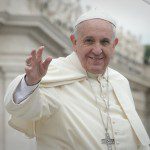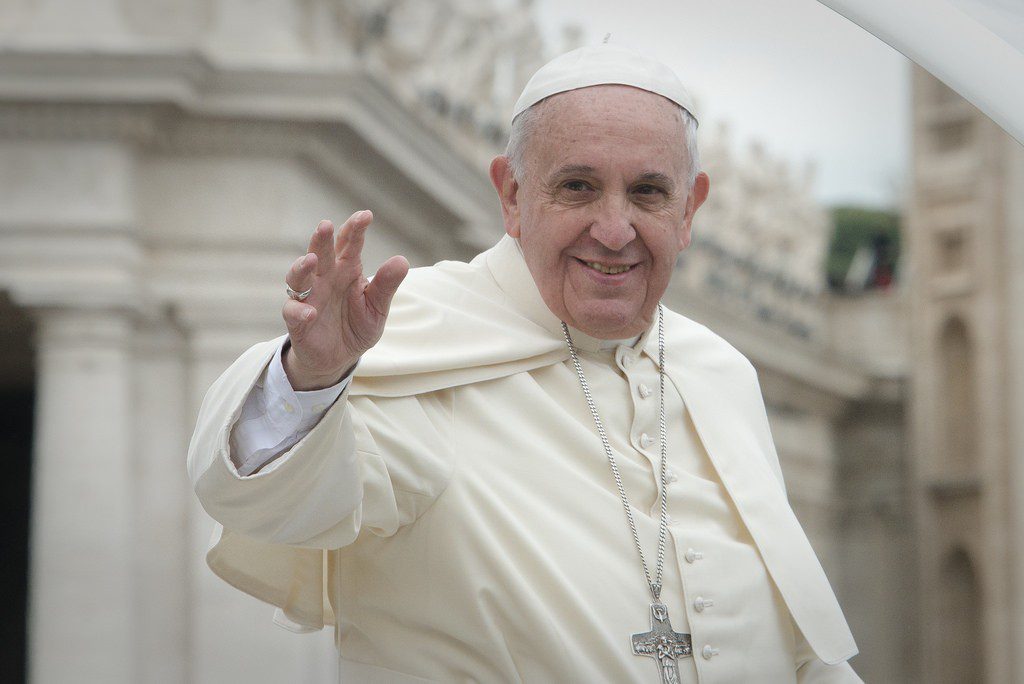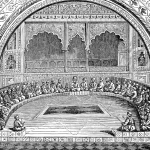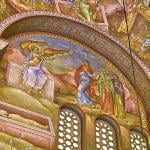As you likely know, the Pope held a mass in Juarez, Mexico, not far from the border with the U.S., yesterday. What did he say?
Let’s start with the idea that you could kinda sorta read the Pope’s statements at the border two ways:
The first, the way everyone wants to interpret it, is a call for open borders, and for the US to let migrants cross easily, to take them in, and qualify them for residency based on claims of persecution, or due to violence in their home countries, or deep poverty.
The second, is a call for the home countries to get their acts together, e.g., for the Mexican government to put an end to corruption, for the wealthy to be converted to caring about the poor, etc. – in which case, the border symbolizes the desperation of these people and the failures of their home countries.
What exactly did he say?
I don’t know. Or that is, his homily, the full text of which is found here, is open to interpretation. Here are his most specific paragraphs:
Here in Ciudad Juárez, as in other border areas, there are thousands of immigrants from Central America and other countries, not forgetting the many Mexicans who also seek to pass over “to the other side”. Each step, a journey laden with grave injustices: the enslaved, the imprisoned and extorted; so many of these brothers and sisters of ours are the consequence of a trade in human beings.
We cannot deny the humanitarian crisis which in recent years has meant migration for thousands of people, whether by train or highway or on foot, crossing hundreds of kilometres through mountains, deserts and inhospitable zones. The human tragedy that is forced migration is a global phenomenon today. This crisis which can be measured in numbers and statistics, we want instead to measure with names, stories, families. They are the brothers and sisters of those expelled by poverty and violence, by drug trafficking and criminal organizations. Being faced with so many legal vacuums, they get caught up in a web that ensnares and always destroys the poorest. Not only do they suffer poverty but they must also endure these forms of violence. Injustice is radicalized in the young; they are “cannon fodder”, persecuted and threatened when they try to flee the spiral of violence and the hell of drugs, not to mention the tragic predicament of the many women whose lives have been unjustly taken.
“Forced migration” certainly seems to place the blame on the home countries, where the “poverty and violence, . . . drug trafficking and criminal organizations” are found. And he decries the injustices in the journey itself as well.
But this is a homily — and as such, there’s a scripture text, in this case, the story of Jonah, calling the Ninevites to repentance, about which he says,
Let us together ask our God for the gift of conversion, the gift of tears, let us ask him to give us open hearts like the Ninevites, open to his call heard in the suffering faces of countless men and women. No more death! No more exploitation! There is still time to change, there is still a way out and a chance, time to implore the mercy of God.
He is maddenly non-specific. By “death” does he mean deaths in home countries causing people to flee? Or deaths at the border — and, if the latter, how does he want this to end? By ending the poverty causing people to leave? Or by the U.S. opening its border to all? And what is the “exploitation” he’s thinking of? Home-country exploitation? Or the exploitation of smugglers, which would end, again, if borders were opened?
And who’s the “us” who should be converted and change our ways in order to end this? One presumes his audience didn’t think of themselves as having anything to repent of — was he calling them to be Jonahs and preach repentance to others?
Presumably he was intentionally non-specific, so that one set of hearers could hear, by the symbolism of the location, a call for open borders, without opening himself up to criticism that he’s interfering in the United States’ right to control its borders. But it’s maddening.
Bonus comments on the Pope’s in-flight press conference: did the Pope approve of contraception?
The official Vatican news agency says this:
Asked about responses to the Zika virus which is causing birth defects, especially across Latin America, the Pope stressed that abortion is a crime which can never be justified as a lesser evil and which goes against the Hippocratic oath that doctors must take. Using contraceptives to avoid pregnancy can be acceptable in difficult situations, he said, noting that Pope Paul VI authorized nuns in Africa to do the same half a century ago when they were threatened with rape.
Now, I’m surprised that there isn’t a transcript as NBC reports this in more detail:
Pope Francis on Thursday suggested using artificial contraception in countries afflicted with the Zika virus would be OK for women worried with how the disease is linked to rare birth defects.
Calling it a “lesser of two evils,” Francis indicated that choosing to avoid pregnancy altogether would be the better alternative to abortion.
Abortion “is an evil in and of itself, but it is not a religious evil at its root, no? It’s a human evil,” he told reporters en route to Rome following his six-day visit to Catholic-heavy Latin America, which is grappling with a Zika outbreak.
“On the other hand, avoiding pregnancy is not an absolute evil,” he continued. “In certain cases, as in this one (Zika), such as the one I mentioned of Blessed Paul VI, it was clear.”
Now, the case of Paul VI he’s referring to is a situation in Belgian Congo in the 1960s, when nuns at high risk of rape were permitted to use contraceptive pills. As the Catholic News Agency explains, this is not really an exception; the Church moral teaching on contraception says that a couple engaging in sexual intercourse must be open to life, but says nothing about what’s morally right or wrong in the case of a woman being assaulted. This same CNA article suggests that maybe the Pope was referring to natural family planning, but I think that’s a bit optimistic, since the reference to Paul VI and the Congolese nuns wouldn’t make sense in that case — no one needs a special exception in order to practice natural family planning. At the same time, if all he meant to say was that if any given woman fully intends to abort a baby in the case of a Zika infection, it would be less sinful for her to use contraception, then, again, the reference to the nuns wouldn’t make sense. Which certainly seems to suggest that his thought was that the risk of microcephaly was a circumstance that would make using contraception a moral choice — but this could hardly be stated in isolation, as, to be consistent, this would open up a blanket approval for any cases in which, were a woman to conceive, her child would be at risk of being disabled, either because the woman and her husband are carriers for some genetic disorder, or because of age and the heightened risk of Down syndrome, or other reasons.
I know my readers think this is all pretty silly, so there’s not too much value in delving into this. Far better to talk about whether the Pope erred in saying that “a person who thinks only of building walls anywhere – rather than building bridges – is not a Christian”. (This was a direct quote in the Vatican account as well as elsewhere.) Now, this statement is a nuisance because he’s combining literal walls and metaphorical bridges in the same sentence, but it also was a surprise to me that the Pope would express such a sentiment, which I associated more with American Protestants, who use Christian as a synonym for “good” or “moral” — “that’s not a very Christian thing to do.” And, given the whole Year of Mercy bit, to say that, if one doesn’t have the right mindset on immigration, one is excluded from salvation, seems a bit excessive.
But this is a plane press conference. No doubt we’ll be hearing all about how the Pope didn’t really mean what people are saying he meant soon enough!















